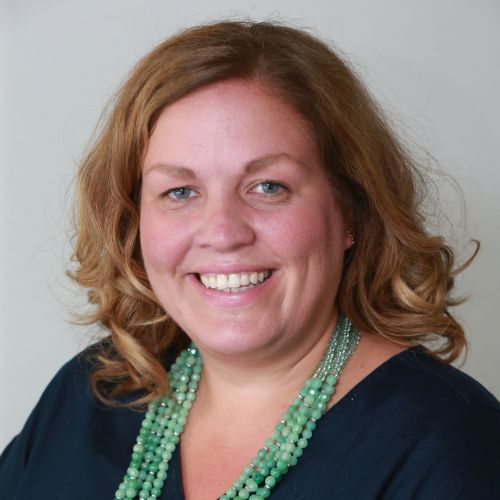School improvement – Our development team is taking our multi-academy trust to new heights

Our best-practice sharing initiative is helping our MAT to improve, says Claire Ingrams…

At Woodland Academy Trust, community is at the heart of everything we do.
In preparing the young people we serve for happy and fulfilled lives, we also want to improve the happiness and optimism levels of our local community.
In our latest efforts to share this collaborative spirit across our various settings, we’ve established a trust development team to enhance what we can offer our current and prospective schools. The group was formed last September so we can now reflect on the progress that has been made.
The trust development team was founded by removing a layer of the senior leadership team at each of our four schools. These team members were brought into the core trust team to work across all four schools. The group is made up of six individuals, and is led by me and our director of education.
Each of the six members have been given specific areas of development to focus on across the trust, broken down as follows:
- English and Y2-4
- Phonics and EYFS
- Maths and Y5-6
- Teaching and learning
- Pupil entitlement
- Wider curriculum
We deemed these six themes to be some of the key areas across the trust which we wanted to improve. Having a specific person driving progress and expansive thinking in these areas is really helpful. The role of each of the six members of the trust development team involves the following:
- Shape and evolve the trust’s offering in their designated area
- Identify if staff across the trust would benefit from additional support
- Work with teachers to further develop their abilities and ideas
- Deliver training in the specialist area to spread best practice
- Encourage lateral thinking
- Support with PPA where needed
Staying focused
In particular, the professional learning meetings the development team runs are of real benefit to so many across the trust. These can take the form of whole-trust training or a member of the team might visit just one of the individual schools.
These training sessions, and sometimes full training days, are not always compulsory and are offered to staff who have self-identified areas which they might want to improve in. For example, we might run a session on the best ways to teach spelling to young pupils, or a refresher on the key things to incorporate into handwriting lessons.
Another benefit of this team is the layer of separation it creates from individual schools. Members of the trust team are able to stay above the daily goings-on of school life and stay focused on teaching, learning and developing their work.
As teachers, we know how busy day-to-day life in a school can be, and how quickly your attention can be taken from your work and planning because you are needed by pupils. These team members have the ability to go into schools then continue with their work undisturbed.
We use ideas from Professor Barak Rosenshine’s ‘ten principles of instruction’ and Tom Sherrington and Oliver Caviglioli’s teaching ‘Walkthrus’ to shape our work.
The Walkthrus consist of more than 50 essential teaching techniques, each with five clear and concise illustrations and explanations. It forms a unique repository of key teaching methods, valuable to any classroom practitioner in any setting.
During the autumn term, the team focused on the techniques of modelling and explaining. This term, our focus is on questioning. Next term we will revisit all three of these areas to consolidate our learning.
So what’s next?
We’ve had the team in place since September and have been really pleased with how everyone has slotted into their roles. As part of our monitoring policy to ensure that the team is creating change in our schools, we’ve started to hold ‘impact weeks’ three or four times per half term.
This involves the trust development team going into a particular year group in one of the schools to explore what is going well, what can be improved, and where the team’s ideas have been implemented.
This is extremely useful for each school’s headteacher and SLT and allows the development team to see what is going on at a school level and adapt their approach going forward, while also supporting teachers to improve their delivery and style.
Ultimately the goal of the team is to be constantly developing and meeting the needs of the schools. So far, we feel this initiative is really achieving this ambition.
Try it at your trust
Want to set up your own trust development team? Think about the following:
- Who in your trust would suit this kind of role? Look for progressive, passionate, dynamic ‘big thinkers’ who are great at working with and leading other staff.
- What would suit your internal structure best? At Woodland Academy Trust we knew that having an additional layer within the trust team that worked across all of our schools would be most beneficial, but think about the structures in your organisation which already exist and work out where this new group would best fit.
- What areas do you want to focus on? The areas we picked may not suit your trust. Think about where your priorities for your pupils are. Do you want to expand your wellbeing and extracurricular offer, or do reading and writing need a bit of a boost? Maybe religion, PSHE, history and geography would be better areas for you to focus on?
- How do you want this idea to grow? Start off small, with a focused group, but have in the back of your mind the potential for this to grow. In the future you may like to support schools outside of your trust or add additional members who focus on other areas, such as parental engagement and external relationships.
Claire Ingrams is executive headteacher at Woodland Academy Trust. Follow the trust on Twitter at @wat_exec.












